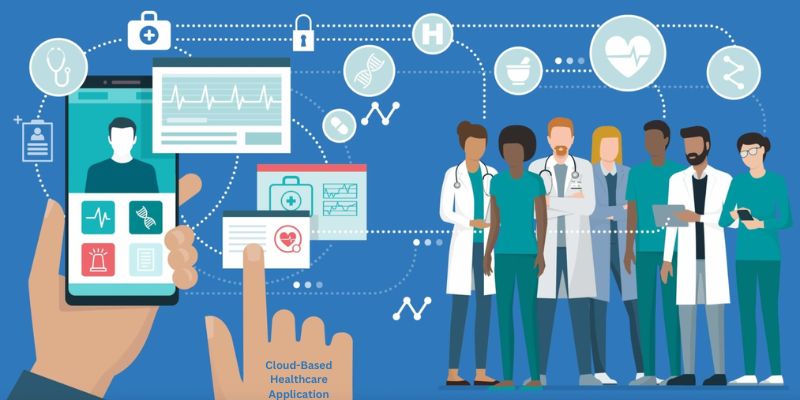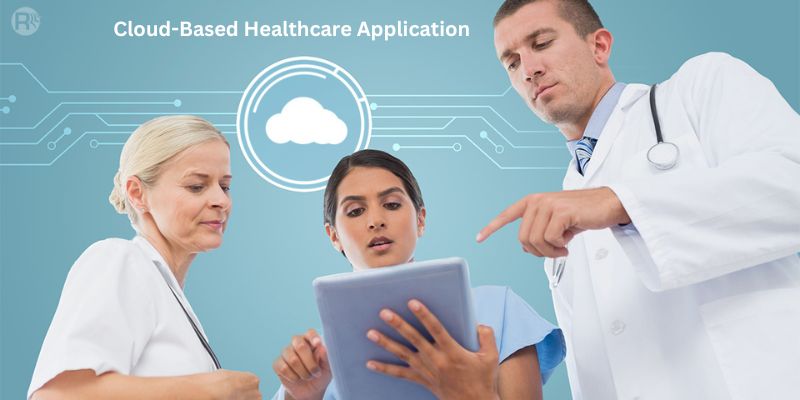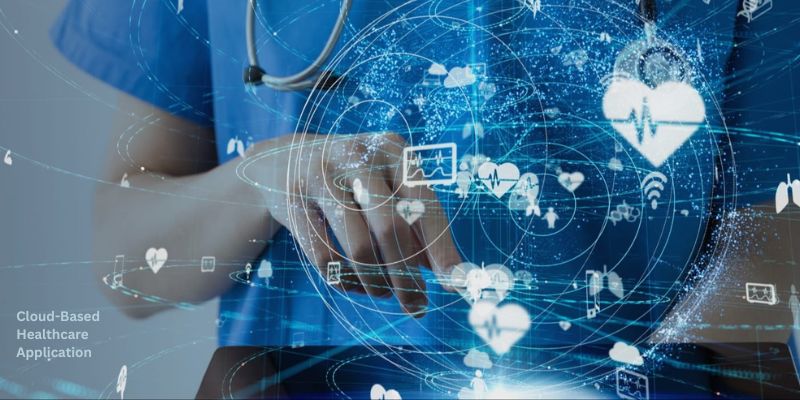Distance Converter
Healthcare is an ever-evolving field, constantly seeking innovative solutions to improve patient care and streamline processes. One such solution that has gained significant attention is cloud-based healthcare applications. These applications harness the power of cloud computing to revolutionize the way healthcare providers manage patient data, collaborate with their peers, and deliver quality care. In this technology news post, acameramen.com will explore some examples and options of cloud-based healthcare application, and how it can potentially transform the healthcare industry.
1. Cloud-Based Healthcare Application – Cloud-based Telemedicine

An Australian effort for cloud-based telemedicine serves as another illustration of how cloud computing is used in healthcare. To enable patients to communicate remotely with their doctors about their medical concerns, the project leveraged cloud computing for telemedicine, e-appointments, e-prescriptions, and e-consulting.
Doctors and clinicians may more quickly access patients’ medical information, records, and test results thanks to this cloud-based technology. Through body sensor networks, this cloud-based healthcare system offered information about the patients’ physiological conditions.
2. Cloud-Based Healthcare Application – Drug Discovery
The success rate of drug discovery is increased while drug discovery is expedited and costs are reduced when cloud computing and quantum molecular design are combined. IaaS (Infrastructure as a Service) makes the incredibly difficult task of distinguishing between various chemicals from billions of chemical structures simpler. If you are interested in similar topics, you can also refer to the article 3 Best Options Of Cloud-Based E-Commerce Application
3. Cloud-Based Healthcare Application – Healthcare Information Systems (HIS)
Data on patients is electronically collected, stored, and shared. Additionally, they might be hospital operational management systems that deal with patient inquiries, improve patient care, handle billing and finances, manage human resources, make policy choices, etc. They are made possible by cloud technology, which also ensures their cross-platform interoperability and interaction with older systems.
4. Cloud-Based Healthcare Application – MyPHRmachines System
The Eindhoven University of technologies has created a PHR system known as the MyPHRmachines system utilizing cloud technologies. Through this system, individuals may exchange and analyze PHR data as well as access the PHR database through specialized applications. MyPHRmachines is made to give various people access with greater flexibility while still providing excellent security.
Because the software deletes copies of the data after a given amount of time, patients who use it may simply communicate particular healthcare data with their doctors without worrying about data misuse. Furthermore, the system is secure and no other party may access the information that the patients don’t wish to give.
5. Cloud-Based Healthcare Application – Microsoft HealthVault

Another PHR management solution in the cloud is Microsoft HealthVault. It allows patients to keep, manage, and share their own health records. Additionally, without the need for additional tools or software, individuals may easily import their healthcare data from various medical devices into the healthvault.
6. Cloud-Based Healthcare Application – Clinical Decision Support System (CDSS)
By giving alerts and reminders to stop unnecessary testing, check for illness signs, follow treatment protocols, prevent potentially harmful consequences, and much more, helps analyze data to enable physicians to diagnose and enhance care. It could utilize machine learning to assess clinical data or be connected to a repository like an EHR.
7. Cloud-Based Healthcare Application – Medical Education
Cloud computing’s adaptability and pay-as-you-go business model make it advantageous for education. Today, technology allows colleges to work more efficiently and spend less money by allowing students to access online lectures from anywhere, fostering international academic collaboration, holding seminars, and much more. Additionally, students can extract information as needed with the use of cloud-based digital medical libraries with a variety of query languages, indexing services, and management systems. In order to keep current with the most recent advances, students, healthcare professionals, and researchers can access material as needed.
8. Cloud-Based Healthcare Application – PHR, EHR & EMR
Electronic Medical Records (EMR), Personal Health Records (PHR), and Electronic Health Records (EHR) are data repositories that are, respectively, controlled by individuals, several managed-care groups, and a single hospital. Customized access to each of them is managed with the use of cloud computing.
9. Cloud-Based Healthcare Application – Population Health Management

Cloud services are used by public health organizations to monitor illness trends, map them spatially, educate the public, and aid in the development of management strategies. The Centers for Disease Control and Prevention (CDC), which is focused on public health surveillance, uses a cloud-based computing platform, for instance, to make data more quickly accessible.
10. Cloud-Based Healthcare Application – Promoting Self-care
As a kind of self-care, there are a lot of online support networks where people who have had a particular condition may share their knowledge and experience with new patients. By employing SaaS and PaaS models, it is feasible to instruct the masses by offering hosting services and apps such as forums for users to create groups and chat tools, among others.
Conclusion
In conclusion, the development and adoption of cloud-based healthcare application has revolutionized the way healthcare is delivered and managed. These applications have demonstrated remarkable potential in enhancing patient care, improving operational efficiency, and promoting collaboration among healthcare professionals. By leveraging the scalability, flexibility, and security of cloud computing, healthcare organizations can streamline processes, reduce costs, and ultimately provide better outcomes for patients.
However, it is important to address concerns related to data privacy and security to ensure the seamless integration and widespread adoption of these applications. As technology continues to advance, cloud-based healthcare applications will undoubtedly play a crucial role in shaping the future of healthcare delivery.